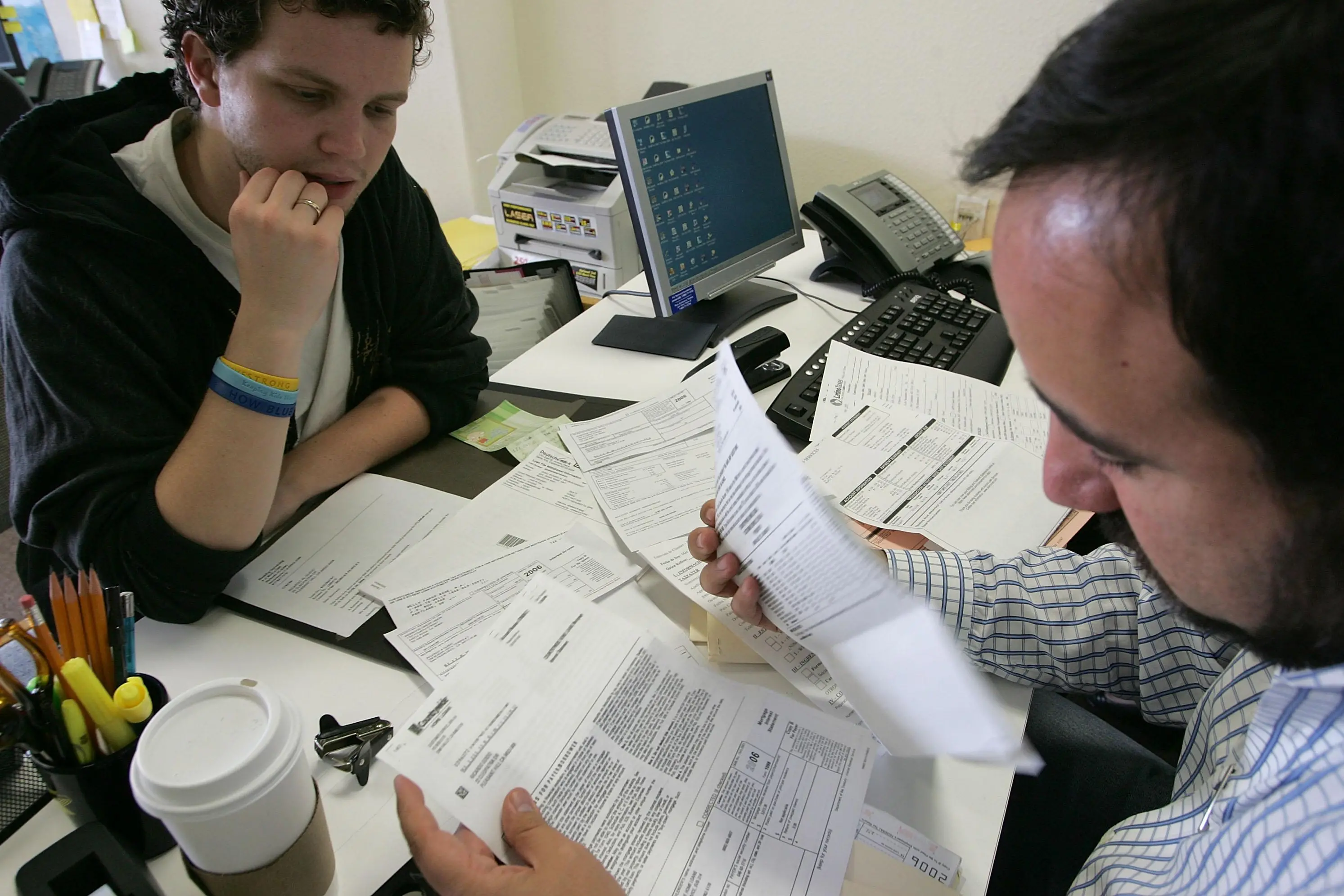PHOTO
Small and medium enterprises (SMEs) are still facing a lot of challenges as the first deadline for value added tax filing returns approaches, with more than 50 per cent of them still not ready to accurately file the returns, according to tax experts.
"Majority of the SMEs and middle-sized companies will be filing tax returns for the first time in April. But companies are still not clear whether they are filing the right or wrong returns. There is no clarity in returns. We can pay tax and liability to the government, but when the audit will come, the documentation will be weak. It will be very difficult to find out right documentation," said Naveen Sharma, chairman of the Institute of Chartered Accountants of India (Dubai Chapter).
"The main challenge is that these companies don't use the same kind of technologies. Secondly, there are a number of companies that came at the last minute so they are not prepared. Thirdly, some have done registration and have started issuing tax invoices, but they are very weak in documentation. Companies have to be accurate in their tax returns. Filing any return will not give an advantage to businesses. If they are weak from day one, then they will be sitting on weak record in 6 months down the line, and that is not a right sign," Sharma told Khaleej Times on the sidelines of the ICAI's day-long event to update its members about VAT challenges.
Among others, Sharma said ICAI members have questions about reverse charge mechanism, free zones, system implementation and accounting. "Mere registration is not going to help anyone. We have to ensure that companies are on the right side of the law because there are penalties for not filing or late filing the returns," Sharma added.
According to Mayank Sawhney, director of MaxGrowth Consulting, one of biggest issues is that suppliers' invoices are improper. "Most of the suppliers' invoices are coming without their proper names, addresses and TRNs [tax registration numbers], which will create problems for companies to claim input tax on that. Because their systems are not proper, they have not done the right treatment of certain transactions," Sawhney said on the sidelines of the event, which was attended by 450 members of the ICAI.
"In certain transactions where they are subject to charge VAT, they have not charged it. Either they were given wrong advice or didn't understand it properly. Their documents can be corrected but it will be very difficult to correct the suppliers' documents. SMEs are not fully prepared. However, those who obtained professional help are in a much better shape," he added.
He pointed out that more than 50 per cent of SMEs are prepared.
"Even those who have filed tax returns, they might not be accurate. Once processing of those returns is done and the FTA [Federal Tax Authority] asks for further details, then the companies could face issues with that. The companies will think that they have filed it correctly but the FTA will ask for audit files and they will check certain things. From there, they could potentially be exposed to financial penalties," he added.
Sawhney advised that filing the wrong return is not the right thing to do. It is better that their first returns should be right. "Where they are not sure, they must take external and internal help."
Nirav Shah, director of Fame Advisory, said not everyone is prepared for filing tax returns.
"It appears people are only focusing on the format with 8 or 9 fields, which needs to be populated. We encourage people to start filing in time. Since a lot of effort goes in to compiling the data, it will take a while for the people and companies to settle down. We expected it will take 6 months to fully comply and appreciate it," he pointed out.
He expects 60 to 70 per cent of SMEs will not be in a ready state for filing tax returns and they will get more organised in due course.
Anurag Chaturvedi, senior director of Crowe Horwath, also echoed other tax experts, saying more than 50 per cent of SMEs are not ready to file the right tax returns.
Big groups face compliance challenge
Meanwhile tax experts in the UAE noted that it will take about 6 months for big companies to fully fall in line when it comes to the proper filing of value added tax returns.
"We are seeing 2 monthly cycles being done for big enterprises which is bringing more clarity to people. Therefore, it will become a routine matter in a couple of month time," said Shah.
"Once they have done 3 or 4 filings, they will know what to write, how to write and what to expect from the FTA [Federal Tax Authority] for any additional details and what to reconcile. Their systems are in place. Around 15 to 20 per cent of big enterprises are not there but they are learning fast. However, in the next 6 months, 70 to 80 per cent will fall in line."
Sharma noted that big companies have filed their tax returns but they are facing the issue of reconciliation.
Copyright © 2018 Khaleej Times. All Rights Reserved. Provided by SyndiGate Media Inc. (Syndigate.info).





















